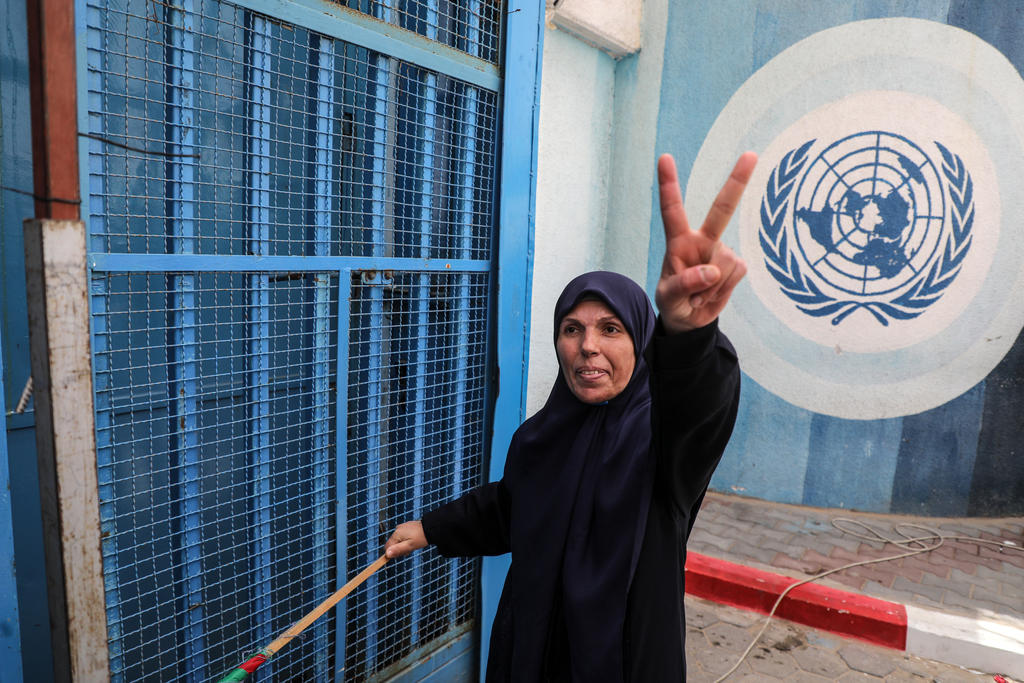Jerusalem, 4 December, 2022 (TPS) — Already-strained ties between Israel and the United Nations have become even more stressed in recent days.
In the Mideast, the UN’s top envoy for the Mideast conflict tweeted condolences to the family of a Palestinian who was killed while attacking a police officer, and a UN human rights investigator told Palestinians they have a “right to resist Israel.”
And in the halls of the UN General Assembly, delegates approved five anti-Israel resolutions, including plans to commemorate the Palestinian Naqba and calling for Moscow to host an international peace conference.
The Envoy
Tor Wennesland, the UN Special Coordinator for the Middle East Peace Process, raised Israeli ire over the death of Ammar Mifleh, a 23-Palestinian in the town of Huwara, near Jenin.
On Friday, Mifleh tried to break into an Israeli car but was shot and wounded by its occupant, an off-duty soldier. Mifleh ran from the car, stabbed a nearby Israeli Border Policeman in the face. Footage posted on social media showed Mifleh scuffling with two Border Policemen while two other Palestinians tried to pull him loose.
When Mifleh managed to pull one Border Policeman’s automatic off, the officer shot Mifleh with a handgun.
The footage, filmed by a Palestinian from a window directly across the street did not show the stabbing.
The next day, Wennesland tweeted, “Horrified by today’s killing of a Palestinian man, Ammar Mifleh, during a scuffle with an Israeli soldier near Huwara in the o. West Bank. My heartfelt condolences to his bereaved family. Such incidents must be fully & promptly investigated, & those responsible held accountable.”
In response, Emmanuel Nachshon, Deputy Director General for Public Diplomacy at Israel’s Ministry of Foreign Affairs tweeted back, “This reaction is a total distortion of reality. This incident is a terror attack, in which an Israeli policeman was stabbed in his face and the life of another police officer was threatened and consequently he shot his assailant. This is NOT a “scuffle”-this is a terror attack!”
The Investigator
In a story first reported by the Tazpit Press Service, the UN’s Special Rapporteur on Palestine, Francesca Albanese told an audience in Gaza that Palestinians “have a right to resist Israel.” She was addressing a conference organized by the Hamas-affiliated Council on International Relations on Nov. 28, five days after Palestinian terrorists killed two Israelis and wounded more than 20 others in bombings at a pair of Jerusalem bus stops.
In response, Rabbi Uri Pilichowski, a dual American-Israeli whose daughter was injured in the bombings told TPS, “Comments calling for violence against Israel are terror. There’s no two ways about it. If you claim that resistance is non-violent, you’re not fooling anyone. Palestinians understand what you mean. Innocent Jews die.”
Pilichowski, a New Jersey native, called Albanese’s remarks “outright incitement to violence.”
Albanese is an Italian human rights lawyer and former official for the UN Relief and Works Agency (UNRWA) which supports Palestinian refugees. Israel opposed Albanese’s appointment as rapporteur in May based on her history of support for a one-solution and the Boycott Divestment and Sanctions campaign.
She has stated on several other occasions that Palestinians have a “right to resist Israel.”
The Resolutions
On Wednesday, the UN General Assembly voted on five anti-Israel resolutions. The one sparking the most outrage called for the UN to commemorate the 75th anniversary of the Palestinian “Naqba,” presumably on or around the time Israel celebrates its 75th Independence Day. This year’s celebrations will begin on the night of May 4.
The vote passed 90-30, with 47 abstentions. The US, which does not have veto power in the General Assembly, voted against the Naqba event.
Another resolution called for an international conference to discuss the Mideast conflict be convened in Moscow. Despite Russia’s diplomatic isolation since its invasion of Ukraine, the resolution easily passed 154-9, with ten abstentions. Ukraine raised eyebrows by approving the non-binding measure.
A third resolution condemned Israel for killing Palestinian-American reporter Shireen Abu Akleh and named a training program for Palestinian journalists after her.
The remaining resolutions called for a halt to settlement activities, land confiscation and home demolitions, demanded Israel release prisoners and “end to arbitrary arrests and detentions,” while the last resolution called on Israel to rescind its 1981 annexation of the Golan Heights. Both were non-binding resolutions that the General Assembly has passed in various iterations numerous times.
Later in December, the General Assembly is expected to vote on a resolution which would ask the International Court of Justice to give a legal opinion on “the occupation of Palestine.”
Jerusalem regards the ICJ, which is based in The Hague, as biased and fears that a ruling would give a legal cover to the Boycott, Divestment Sanctions campaign against Israel.
